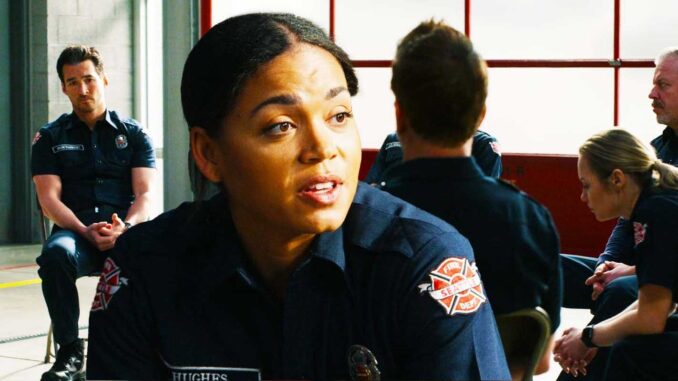
More Than a Voice: How Station 19 Highlighted Hughes' Unique Role in the Seattle Fire Department
Station 19, the Grey's Anatomy spin-off, isn’t just a show about dramatic rescues and fiery explosions; it’s a character study, particularly of its ensemble cast of firefighters. Among them, Vic Hughes stands out, not just for her vibrant personality and sharp wit, but for the unique and crucial role she carved out for herself within the Seattle Fire Department. Through storylines both heartwarming and heart-wrenching, the show highlighted how Hughes, beyond being a skilled firefighter, brought a desperately needed layer of empathy, community engagement, and mental health awareness to the traditionally stoic institution.
From the very beginning, Hughes demonstrated a keen awareness of the human element often overlooked in emergency situations. While her colleagues focused on the technical aspects of firefighting – controlling the flames, rescuing victims – Hughes recognized the profound trauma and distress experienced by those involved. This sensitivity manifested early on in her interactions with victims, offering comfort and reassurance beyond the immediate physical assistance. She understood that a kind word, a listening ear, could be as vital as a tourniquet in mending both physical and emotional wounds. This inherent empathy, often dismissed as “soft” by some of her colleagues, proved invaluable in de-escalating tense situations and fostering a sense of trust with the community.
This empathy, however, was not a passive characteristic; it was the foundation upon which Hughes built her advocacy. Recognizing the systemic issues that contributed to the crises she encountered, Hughes became a vocal advocate for mental health awareness, particularly within the fire department itself. Witnessing firsthand the emotional toll of constant exposure to trauma, she challenged the entrenched culture of silence and pushed for mandatory therapy and mental health resources for her fellow firefighters. This was a battle fought against deeply ingrained machismo and a reluctance to acknowledge vulnerability. Hughes’ persistence, however, slowly chipped away at the resistance, paving the way for a more supportive and understanding environment within the firehouse.
Beyond the walls of Station 19, Hughes took her advocacy to the community. The creation of "Crisis One" was perhaps the most significant manifestation of her unique role. Recognizing the glaring need for immediate mental health support during emergencies, she conceptualized a program that integrated mental health professionals into the response teams. This initiative, born out of Hughes' personal experiences and deep understanding of the limitations of traditional emergency services, demonstrated her ability to think outside the box and address the root causes of societal problems. "Crisis One" transformed the way the Seattle Fire Department interacted with vulnerable populations, offering immediate on-site mental health assistance to those experiencing crises, preventing escalation, and ultimately saving lives.
The show also subtly highlighted how Hughes challenged the traditional power dynamics within the fire department. As a young, Black woman, she often faced implicit biases and microaggressions, forcing her to constantly prove her competence and assert her voice. She navigated these challenges with grace and resilience, using her experiences to advocate for greater diversity and inclusion within the department. By pushing for mentorship programs and challenging discriminatory practices, Hughes worked to create a more equitable and representative workforce, one that better reflected the community it served.
In conclusion, Station 19 painted a compelling picture of Vic Hughes as more than just a firefighter; she was a catalyst for change within the Seattle Fire Department. She brought a unique blend of empathy, advocacy, and unwavering dedication to her work, challenging the status quo and pushing for a more holistic and compassionate approach to emergency response. Her focus on mental health, community engagement, and inclusivity redefined the role of a firefighter, demonstrating that saving lives is not just about extinguishing flames, but about fostering a healthier, more resilient community for all. Hughes’ legacy within Station 19 serves as a reminder that the most profound acts of heroism often come from those who dare to challenge the norm and champion the human connection at the heart of every crisis.